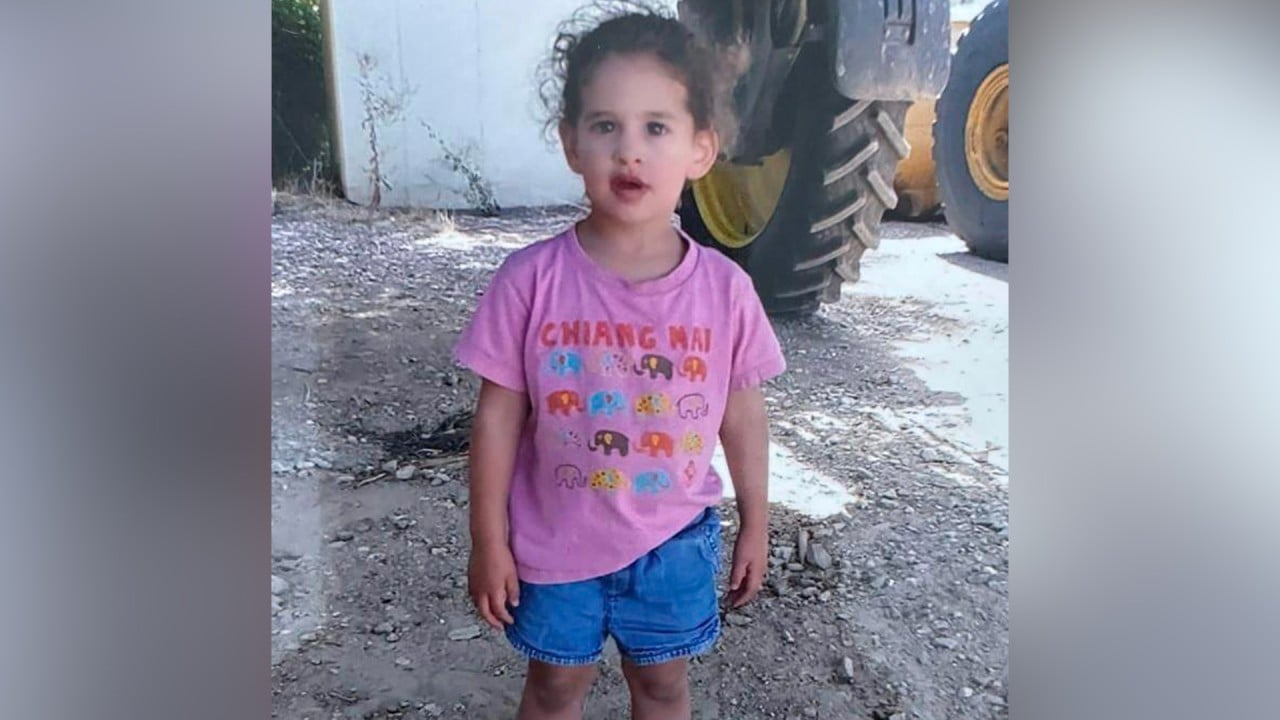It all began late one night in July 1995 with a bloodless palace coup in the Qatari capital, Doha.
At the time, this writer was working as the senior Gulf correspondent of US news agency United Press International (UPI) when the landline in his Dubai home office rang shortly after midnight.
Qatar becomes key intermediary as fate of Gaza hostages hangs in balance
Qatar becomes key intermediary as fate of Gaza hostages hangs in balance
In hushed, strained tones, UPI stringer Jamal Al-Rihawi said he had been authorised by a senior Qatari official to report that the crown prince had staged a coup against his father the emir, who was on holiday in Switzerland at the time.
“Get on the first flight to Doha. Don’t worry about the visa. Somebody will meet you at the airport,” the stringer said.
That left just enough time to draft a first-ever world exclusive, plead with an editor in Washington who had never heard of Qatar to flash the story, and pack and head to the airport.
Landing at Doha at 7am, this writer found the airport surrounded by many more armed security personnel than it had been months before. Fortunately, they appeared more bewildered than hostile.
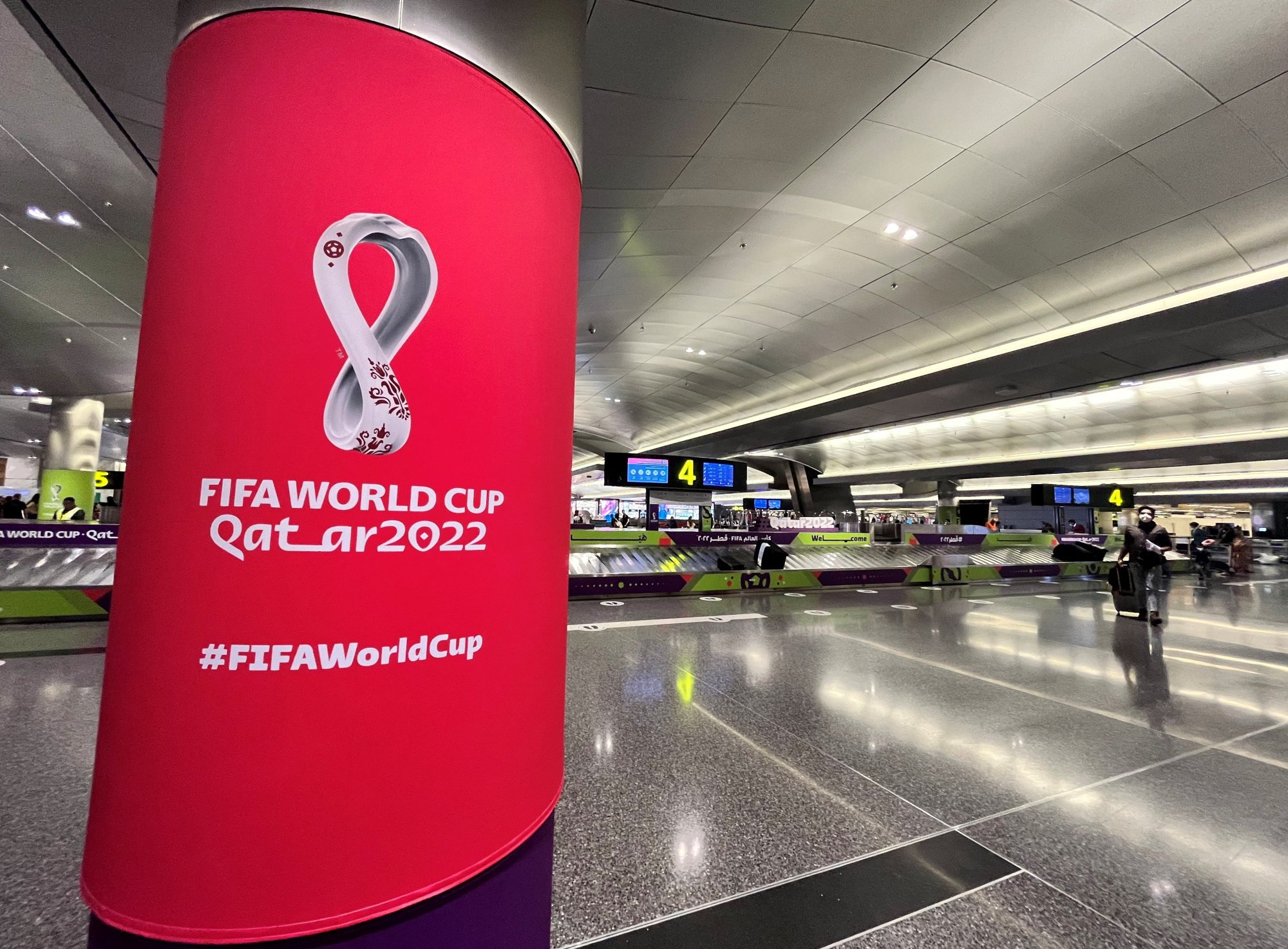
Nonetheless, the air of confused tension at the airport was palpable – it was so early in the coup that most people had nothing to go on but hearsay.
A massive portrait of the recently deposed emir still occupied pride of place in the arrivals lounge, beside a painting of his rebel son.
With no visa, this reporter sat in the arrivals lounge for an hour waiting for the Qatari official who finally appeared, before being whisked off for the first of several background briefings.
The obvious question was: what had motivated the new emir, Sheikh Hamad, to depose his father, Sheikh Khalifa Al-Thani? “He has been holding back Qatar for too long,” the Qatari official said.
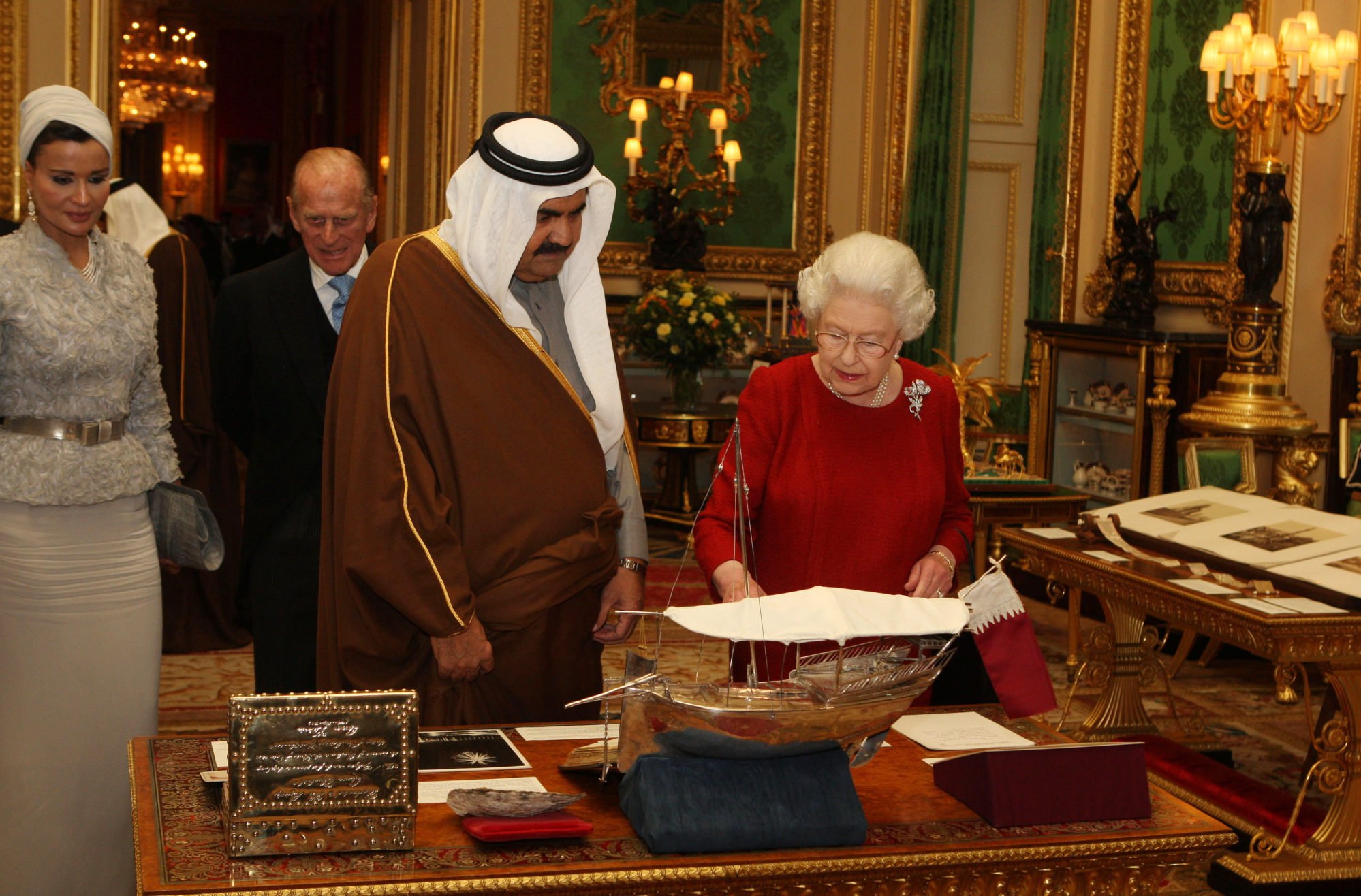
The crux of the argument lay in Khalifa’s stubborn resistance to his son’s plans to exploit Qatar’s natural gas reserves – the largest in the world not associated with crude oil extraction – and invest heavily in the production of exportable liquefied natural gas (LNG).
“His Highness” was old-fashioned, and preferred to “hoard the country’s oil revenues” in personal accounts in European banks “instead of investing in the future”, the official said.
Within months, the new Qatari regime started signing deals with US firms to develop LNG production facilities.
But Doha was short of cash, because the deposed emir legally owned the sovereign wealth deposited overseas, and was desperate to bring the LNG online as soon as possible.
China’s Sinopec signs second 27-year natural gas supply deal with Qatar
China’s Sinopec signs second 27-year natural gas supply deal with Qatar
The new emir even had to borrow US$1 billion from the state-owned telecoms company to finance the budget.
Emir Hamad’s all-in bet on LNG soon paid spectacular dividends, transforming Qatar’s economy and changing the way the world viewed the tiny peninsula-bound country.
“Modern-day Qatar is built on the export of LNG,” Kristin Diwan, a senior resident scholar of the Arab Gulf States Institute in Washington, told This Week In Asia. “Without that wealth, Qatar doesn’t have the means to resist strategic domination by its neighbours and maintain an independent foreign policy.”
[Before 1995] Qatar was very much under the thumb of Saudi Arabia and its foreign policy was not very independent
Qatar has long been at loggerheads with its much bigger Saudi neighbour, which in 1992 seized a piece of Qatari territory.
When Sheikh Hamad, father of the current emir Sheikh Tamim Al-Thani, assumed power in 1995, “Qatar was very much under the thumb of Saudi Arabia and its foreign policy was not very independent”, said Giorgio Cafiero, CEO of Gulf State Analytics, a Washington-based risk consultancy.
But because of Emir Hamad, Doha began pursuing a “sophisticated” foreign policy that made Qatar “independent from Saudi Arabia and other Arab states”, he said.
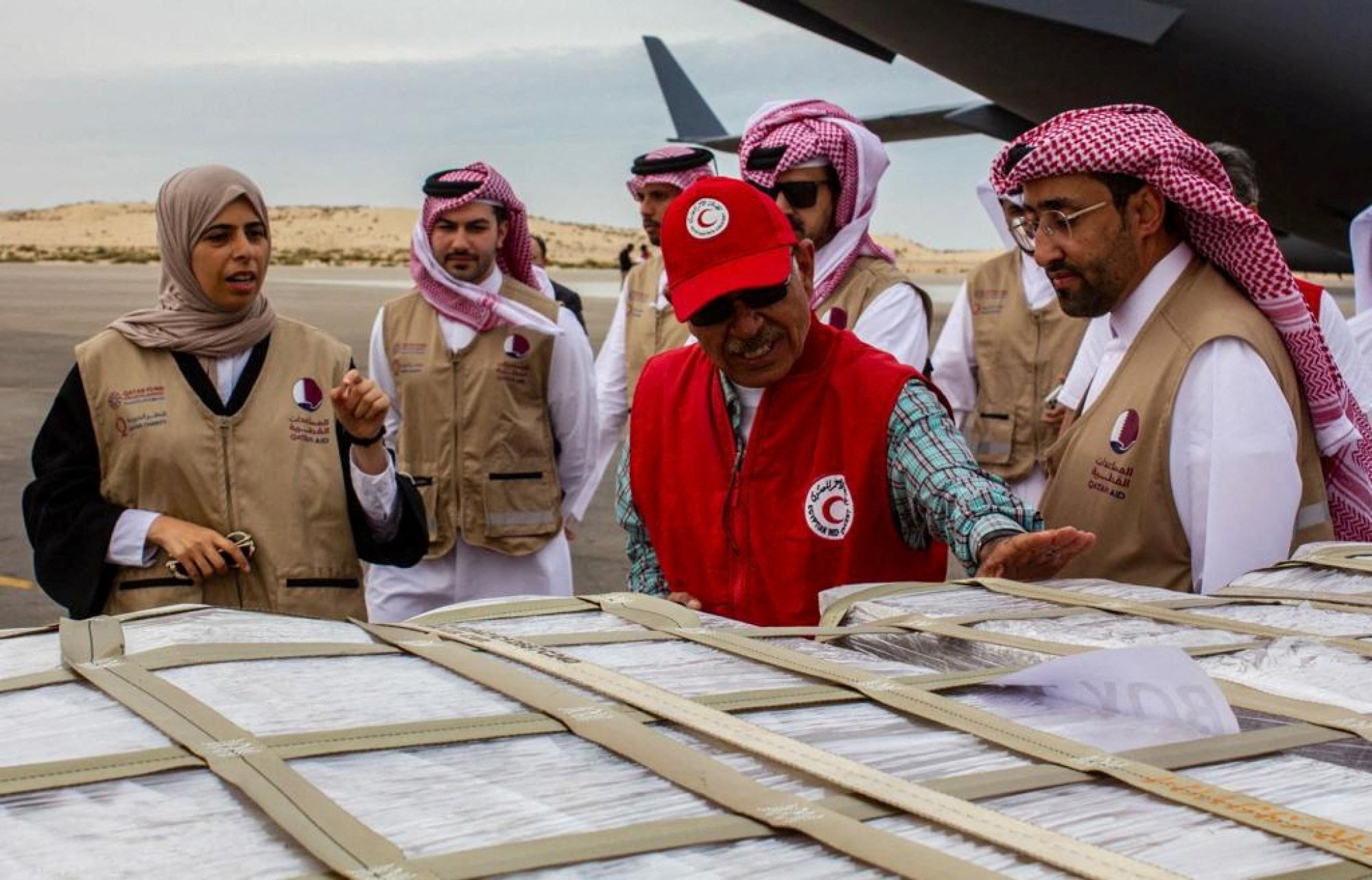
The new Qatari leadership used soft power “in some very creative and interesting ways” that resulted in Doha becoming “very important from the standpoint of conflict resolution in the wider Islamic world”.
During the 2000s, Doha hosted and mediated an end to the so-called Palestinian civil war over Gaza between Hamas, which came to eventually control the territory, and Palestinian Authority leader Mahmoud Abbas’ Fatah.
But long before that had transpired, this correspondent felt the heat of Doha’s tensions with Riyadh, because UPI had recently been rescued from bankruptcy by a Saudi billionaire at the behest of the White House.
‘Israel is manna’: Asia’s migrant workers return despite Gaza war dangers
‘Israel is manna’: Asia’s migrant workers return despite Gaza war dangers
While visiting Doha again in 1996, this writer was summoned by foreign minister Sheikh Hamad bin Jassim for a dressing down.
The minister deliberately placed his enormous feet up on his desk – a huge insult in Arabic culture, implying “you are beneath my feet”.
Sneering, he said: “We have noticed that your coverage” of Qatar’s territorial dispute with neighbouring Bahrain over ownership of the Hawar Islands “is biased in favour of Bahrain”.
He added: “Admit it: you are working under orders from your Saudi ownership!”
Fortunately, he was easily mollified by explanations and this writer was sent packing with the limpest of handshakes.
Not long after Emir Hamad had taken power, Qatar began to heavily invest in projecting soft power, including through positive media coverage, and in 1996 launched its first, Arabic-language, Al Jazeera channel to great fanfare.
Parallel to that, it had discreetly signed an agreement with the US allowing the Pentagon to establish a forward headquarters for the US military’s Central Command, which neither Doha nor Washington made public until 2002.
From this base, the US oversaw its invasions of Afghanistan and Iraq, in 2001 and 2003, respectively.
By 2006, Qatar had surpassed Indonesia as the world’s largest LNG exporter.
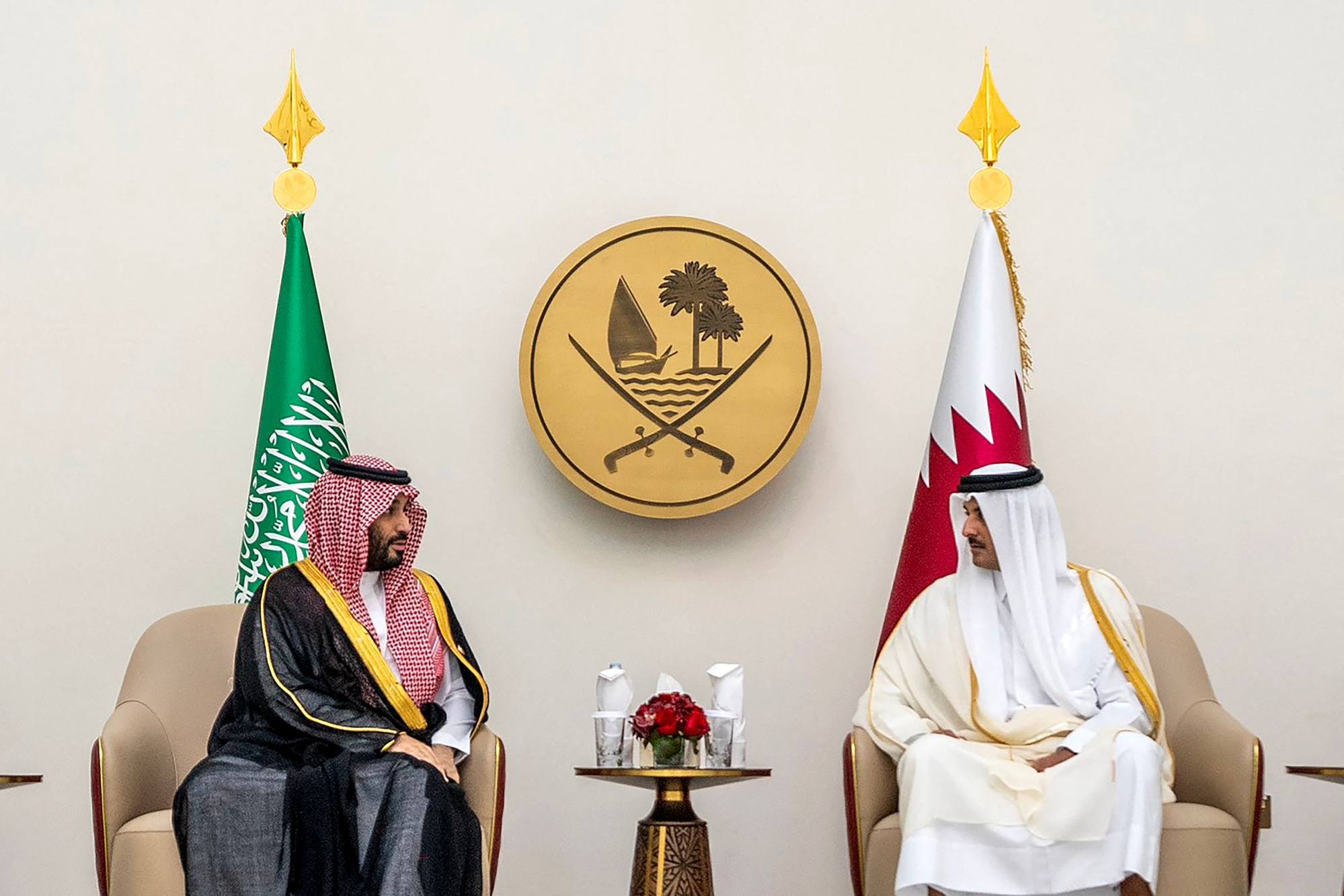
Their historical quarrels had raged since the 1995 coup, fuelled initially by the support of Qatar’s neighbours for the deposed emir Khalifa, which Al Jazeera responded to by broadcasting critical coverage of its rivals.
After several diplomatic bouts, which saw Saudi Arabia and Qatar sever ties for much of the 2000s, the two went on to back opposing sides during the Arab spring uprisings of the early 2010s.
Qatar was able to survive, however, and quickly rebounded to host the 2022 Fifa World Cup. Its LNG wealth has “done so much to empower Doha on the international stage”, Cafiero said.
As a country that does not need to turn to others for financial help, Qatar can exercise considerable autonomy, and has furthered its soft-power goals by investing heavily in major international companies ranging from Britain’s Barclays Bank to Russian oil giant Rosneft, as well as French football club Paris Saint-Germain, Cafiero added.
Why India supporting Israel won’t be a deal breaker in bid to lead Global South
Why India supporting Israel won’t be a deal breaker in bid to lead Global South
In recent years, Doha has abandoned its support for the Middle East’s failed Islamist movements and is now actively pursuing a multipolar foreign policy in which it is “friends with all, enemies with none”, Cafiero said.
At the same time, it was designated a “major non-Nato ally” of the US in January 2022 and is more integrated into Washington’s regional security architecture than any of its neighbours.
“Cultivating these disparate interests and often opposing constituencies generates a broad base of support, but also breeds contradictions,” Diwan said. “Having a mediation strategy helps to reconcile them.”


